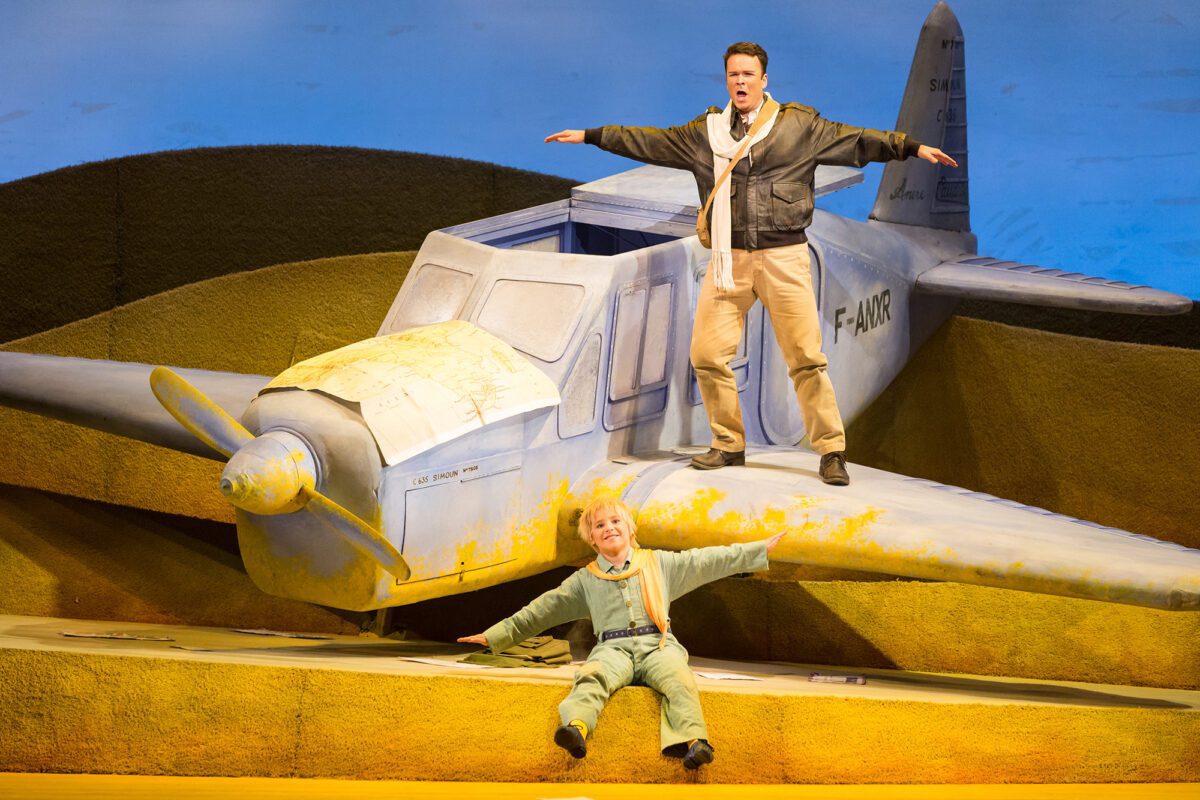The performance art of opera has a commanding presence in both Tulsa and Oklahoma City, but what exactly does it take to become an expert in the field?
Education
The vast majority of opera singers have a bachelor’s degree in music, with many opting to get a master’s, too.
“Music majors take individual voice lessons weekly, take courses in music theory and history, train in several different languages, take acting classes and participate in operas,” says Rob Glaubitz, the artistic director at Painted Sky Opera in OKC.
Alex Johnson, marketing manager at Tulsa Opera and a classically trained opera singer, went to the University of Oklahoma for her bachelor’s and the University of North Texas for her master’s.
“This allows for the training and experience necessary to start auditioning for Young Artist programs, which employ young singers to come do education programming, small roles in main stage performances and cover for larger roles in those performances,” she says.



Preparation
Training is extensive both before and after auditions. Auditioning mostly happens in two parts: a pre-screening, usually a taped audition sent out ahead of time, and then the majors, that often involve flying to NYC, Chicago or Houston to audition live.
For performance prep, every singer has their own routine, but they are expected to come to rehearsals fully off-book, meaning all notes and lines are memorized.
“It’s often a shorter rehearsal period than a musical or a play since most companies bring in singers for the principal cast from out of town,” says Johnson.
Language is also a key factor.
“I always started with translating the opera if it was in a foreign language and nailing down any pronunciation issues,” says Glaubitz.
Johnson agrees.
“Singers work with coaches to learn the role they are cast in, including language, diction and style,” she says. “Sometimes, a singer can work with a dialect coach if it’s a very specific type of role.
Maintenance
Staying healthy and performance ready is also a major part of the process.
“These routines are similar to those of a professional athlete, including getting enough sleep, eating the right things to help us perform our best, warming up before singing and cooling down after, continuing to sharpen our technique though technical practice, and rehabbing injuries with medication or therapeutic routines as prescribed by a doctor,” says Glaubitz.
“There are several singer rituals like steaming, eating or avoiding certain foods, straw phonation, or yoga and stretching that come into play,” says Johnson. “There is a lot of daily maintenance that goes into making sure a performance goes smoothly!”
As for an off-season, they don’t really get one.
“Performances can happen at any time during the year, so there’s often a lot of juggling what a singer is doing in the moment and what they have coming up,” says Johnson.
“Some singers regularly work at universities as college professors, myself included,” adds Glaubitz. “Most singers are also learning new music and improving their own technical ability. The whole business is extremely entrepreneurial.”






















